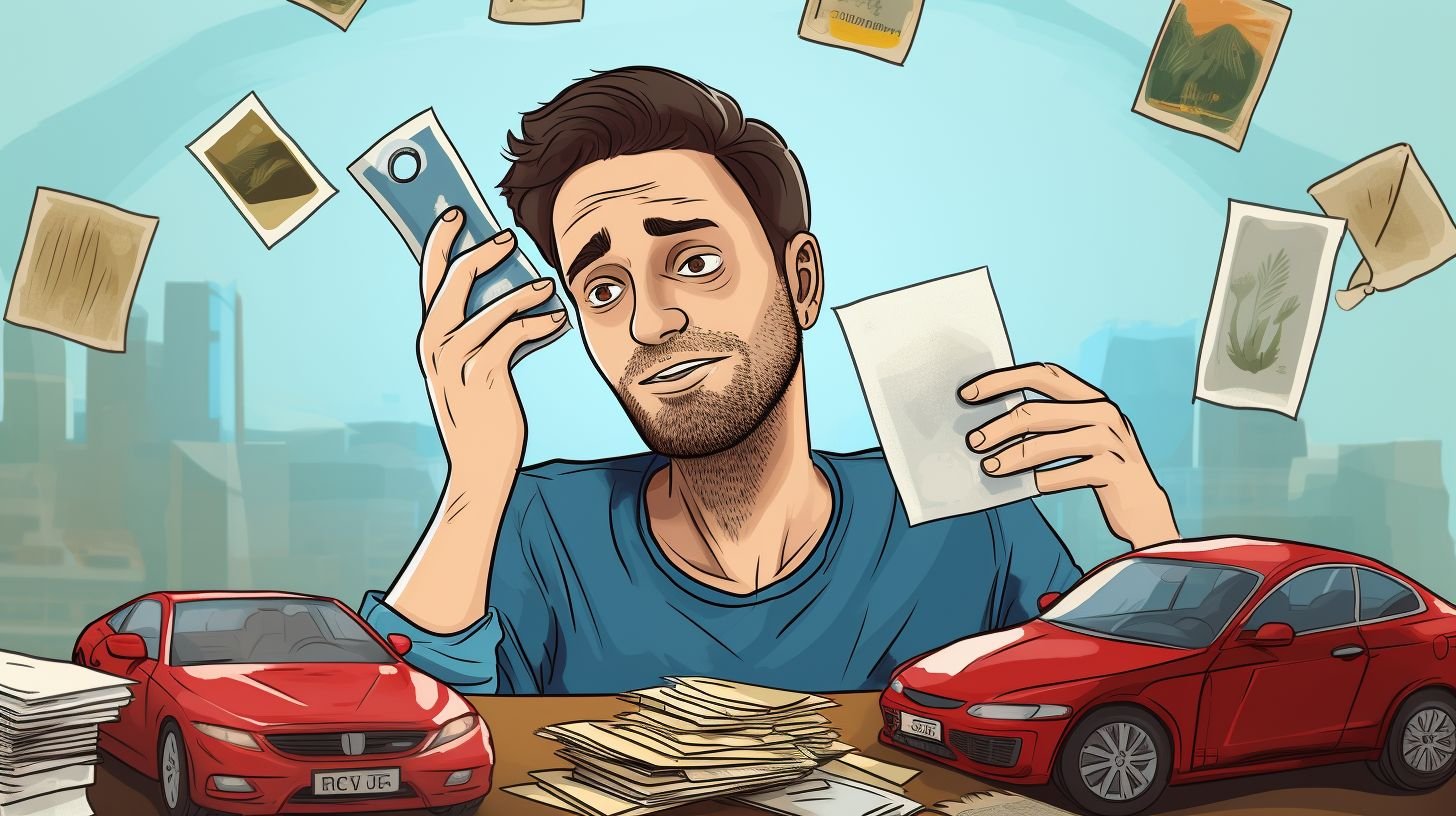What Happens To Loans After Death?

Key Takeaways
- Loans do not disappear after someone dies, and they are typically the responsibility of the deceased person’s estate.
- Certain types of debts, like medical bills and credit card debt, can be passed on to family members or surviving spouses in some cases.
- Co – signers on loans are still responsible for making payments even after the borrower’s death.
- In community property states, both spouses may be held liable for each other’s debts.
Understanding Debt After Death
Who is Responsible for Your Debt After Death? Debts are typically the responsibility of the deceased person’s estate, meaning that they must be paid out of any assets left behind. However, in some cases, certain debts may be passed on to a surviving spouse or co-signer. It is important to understand how debt is inherited and what options are available for protecting your family from your debt after you die.Who is Responsible for Your Debt After Death?
Your debt doesn’t just go away when you die. Most of the time, it goes to your estate. This means that any money and things you own may be used to pay what you owe. These could be a car, house or bank account savings. If there isn’t enough in your estate, sometimes other people might have to pay. For example, if someone co-signed a loan with you or has a joint account with you, they will need to keep making payments on these debts after you pass away. In some states, husbands and wives might also have to cover their late spouse’s debt from shared assets.How Debt is Inherited
Debt is like a baton in a relay race. After a person’s death, the debt baton gets passed to their estate. The estate takes all of what the person owned and owed at death. Then it pays off any bills, taxes and debts from this pool of money. This includes credit card debt, medical bills or car loans. But be careful if you co-signed on any loan with them! As a co-signer, bank sees both of you as one for that loan deal. If one can’t pay, the other has to step up. So after they die, their part of the loan doesn’t go away – the full weight falls on your shoulders.Types of Debts that Can be Inherited
 Some types of debts that can be inherited include medical bills, car loans, credit card debt, mortgages, and student loans.
Some types of debts that can be inherited include medical bills, car loans, credit card debt, mortgages, and student loans.Medical Bills
Medical bills can turn into a big issue after a person dies. If you leave behind medical debts, the money from your estate may be used to pay them off. In some cases, these bills can even be passed on to your family members. Each state has different rules about this. It’s important to know that in many places, medical debt is one of the first things paid out from an estate. This means other parts of your inheritance might get used up before they reach your loved ones.Car Loans
Car loans can stay with us even after we die. If I have a car loan when I pass away, somebody else may need to pay it off. This person could be someone from my family or the person handling my estate (estate executor). The law says car loans are liabilities, just like other debts such as credit card bills and mortgages. Those who deal with estates must follow an order of payment for debts. This means some debts get paid before others. Funeral costs, administration expenses, secured creditors, and certain other debts come first in line before car loans. Last in line are things like interest on unsecured loans that were put off for later (deferred debts).Credit Card Debt
Credit card debt is one type of debt that can be inherited after someone’s death. When a person passes away, their credit card debt becomes the responsibility of their estate. This means that the money owed on the credit cards needs to be paid off using any assets or funds left behind by the deceased person. If there are not enough resources in the estate to cover the credit card debt, then the credit card company may have to absorb the loss. However, it’s important to note that if the deceased person had a joint account holder or co-signer on their credit cards, they may still be responsible for paying off any remaining balance. Additionally, in certain states with community property laws, spouses may also be held accountable for any credit card debt left behind by their deceased partner.Mortgage
 If someone has a mortgage when they die, there are a few things that can happen. If they had a co-signer on the mortgage, that person is still responsible for making payments even after the borrower’s death. The estate executor is also responsible for managing assets and paying off debts, so if they mismanage or fail to pay the mortgage, they can be held accountable. If the deceased person didn’t have a co-signer, then it’s up to the estate to pay off the remaining balance of the mortgage. And if someone inherits a home with an outstanding mortgage balance, they will be responsible for making future mortgage payments. So it’s important to plan ahead and think about how your loved ones will handle your mortgage if something happens to you.
If someone has a mortgage when they die, there are a few things that can happen. If they had a co-signer on the mortgage, that person is still responsible for making payments even after the borrower’s death. The estate executor is also responsible for managing assets and paying off debts, so if they mismanage or fail to pay the mortgage, they can be held accountable. If the deceased person didn’t have a co-signer, then it’s up to the estate to pay off the remaining balance of the mortgage. And if someone inherits a home with an outstanding mortgage balance, they will be responsible for making future mortgage payments. So it’s important to plan ahead and think about how your loved ones will handle your mortgage if something happens to you.Student Loans
Student loans are an important aspect of debt after death. When someone with federal student loans passes away, their debt is usually discharged, meaning it doesn’t have to be repaid. However, private student loans may have different rules. If there is a cosigner on the loan, they may become responsible for paying back the debt. It’s essential to understand these differences and plan accordingly to protect your family from inheriting unnecessary financial burden.Cosigned Bills and Loans
When someone passes away, their cosigned bills and loans can have an impact on the assets available for their heirs. Here are some important things to know about cosigned debts:. – If you have cosigned a loan with someone who has passed away, you will still be responsible for making payments on that loan. – The creditor may require the full repayment of the debt upon the death of the primary borrower. – Cosigners should communicate with creditors to understand their options and responsibilities after the borrower’s death. – If you are unable to make payments on a cosigned debt, it could negatively affect your credit score. It is crucial to consider these factors when entering into any kind of financial agreement as a cosigner.The Role of Community Property States
In community property states like Arizona, California, Idaho, Louisiana, Nevada, New Mexico, Texas, Washington, and Wisconsin, both spouses are responsible for each other’s debts. This means that if one spouse passes away with outstanding debt, the surviving spouse may be held liable for those debts. It doesn’t matter if it was in the deceased spouse’s name only; the responsibility still falls on both spouses. However, in non-community property states, the surviving spouse is generally not responsible for their deceased spouse’s debts unless they were a borrower or cosigner on those debts. So it’s important to know which category your state falls into when considering what happens to loans after death.Understanding Filial Responsibility Laws
 Filial responsibility laws are laws that require adult children to financially support their parents if their parents cannot afford it. These laws can vary from state to state, but they are based on the idea of filial piety, which is the concept of respecting and caring for one’s parents. In some states, these laws can be enforced if a parent incurs medical debts or needs long-term care and cannot pay for it themselves. It’s important to note that not all states have filial responsibility laws, and even in states that do, they may not be regularly enforced. However, it’s still essential to understand the potential implications if you live in a state with such laws. If you find yourself facing financial responsibilities under filial responsibility laws, it is advisable to consult an elder law attorney or a financial professional who specializes in this area. They can provide guidance on your specific situation and help you navigate any legal obligations that may arise. It’s always best to seek expert advice rather than making assumptions or relying on incomplete information when it comes to matters as important as finances and legal responsibilities.
Filial responsibility laws are laws that require adult children to financially support their parents if their parents cannot afford it. These laws can vary from state to state, but they are based on the idea of filial piety, which is the concept of respecting and caring for one’s parents. In some states, these laws can be enforced if a parent incurs medical debts or needs long-term care and cannot pay for it themselves. It’s important to note that not all states have filial responsibility laws, and even in states that do, they may not be regularly enforced. However, it’s still essential to understand the potential implications if you live in a state with such laws. If you find yourself facing financial responsibilities under filial responsibility laws, it is advisable to consult an elder law attorney or a financial professional who specializes in this area. They can provide guidance on your specific situation and help you navigate any legal obligations that may arise. It’s always best to seek expert advice rather than making assumptions or relying on incomplete information when it comes to matters as important as finances and legal responsibilities.Secured vs. Unsecured Debts
It’s essential to understand the difference between secured and unsecured debts when it comes to inheritance. – Secured debts are those tied to an asset or collateral. Common examples include mortgage loans and car loans. If the debtor passes away, the asset can be sold off to repay the debt. For instance, a deceased person’s estate executor may sell a house to settle the mortgage loan. – Unsecured debts, on the other hand, are not backed by any collateral. This includes debts like credit card bills and student loans. Upon death, these debts are paid from the deceased person’s estate. If the estate does not have enough assets to cover the debts, they usually go unpaid. – In case of secured debts, joint account holders or co-signers remain responsible for payments after the death of the primary borrower. This is because the asset tied to the debt, such as a house or a car, can be repossessed by the lender if the loan is not paid off. – Lastly, estate executors can be held responsible for the estate’s debts if they mismanage assets or do not pay debts before distributing assets to beneficiaries. This rule applies to both secured and unsecured debts. Understanding these differences will help you better navigate the handling of debts after a loved one’s death.What Can Creditors Take from an Estate?
Creditors can take certain assets from an estate to settle outstanding debts after someone dies. Here are some examples:. – Cash and bank accounts – Stocks, bonds, and other investments – Real estate property – Vehicles and valuable possessions The specific items that creditors can take will depend on the laws in your state. It’s important to note that some assets may be exempt from creditor claims, such as life insurance proceeds or retirement accounts with designated beneficiaries. Remember, it is crucial to consult with a financial professional or estate planning attorney for guidance on protecting your assets and understanding the laws related to creditor claims.The Importance of Life Insurance in Protecting Heirs
Life insurance plays a crucial role in protecting heirs from the burden of debt after the death of a loved one. It provides funds that can be used to cover outstanding debts, such as medical bills, taxes, and loans. This is important because these debts can reduce the assets available for heirs and potentially leave them with financial obligations. Having life insurance ensures that there is a source of money specifically designated to pay off any remaining debts. It helps alleviate the financial stress on beneficiaries and gives them peace of mind knowing that they won’t have to bear the burden themselves. Additionally, life insurance can also provide financial support for funeral expenses, estate taxes, and other costs associated with settling an estate. By having adequate coverage, you can ensure that your loved ones are protected financially during what can already be a difficult time. Overall, life insurance acts as a safety net for your heirs by providing them with much-needed funds to cover debts and expenses after your passing. It offers protection and security during an already challenging period and allows your loved ones to focus on grieving without added financial strain.How to Protect Your Family From Your Debt
To protect your family from your debt, it is essential to engage in proper estate planning and take steps to get out of debt before your passing.Estate Planning
Estate planning is a crucial step in protecting your family from inheriting your debt after you pass away. It involves making important decisions regarding who will receive your assets and how your debts will be handled. By creating a comprehensive estate plan, which can include a will, trusts, and other legal documents, you can ensure that your loved ones are taken care of and that your debts are properly addressed. Estate planning also allows you to appoint an executor who will handle the distribution of your assets and the payment of any remaining debts. It’s important to consult with an experienced estate planning attorney or financial professional to help guide you through this process and ensure that all aspects of your estate plan are in order.Get Out of Debt
 To get out of debt, it’s important to develop a plan and take action. Start by creating a budget and tracking your expenses. Cut back on non-essential spending and look for ways to increase your income, like taking on a part-time job or selling unwanted items. Consider talking to creditors about negotiating lower interest rates or payment plans. It may also be helpful to seek guidance from a financial advisor or credit counselor who can provide personalized advice. Remember, getting out of debt takes time and effort, but with determination and smart choices, you can achieve financial freedom.
To get out of debt, it’s important to develop a plan and take action. Start by creating a budget and tracking your expenses. Cut back on non-essential spending and look for ways to increase your income, like taking on a part-time job or selling unwanted items. Consider talking to creditors about negotiating lower interest rates or payment plans. It may also be helpful to seek guidance from a financial advisor or credit counselor who can provide personalized advice. Remember, getting out of debt takes time and effort, but with determination and smart choices, you can achieve financial freedom.What Happens to Your Mortgage When You Die?
When you die, your mortgage doesn’t automatically disappear. Here’s what happens to your mortgage:. – The remaining balance of your mortgage will be paid off from the proceeds of your estate. – If you co-signed the loan with another person, they may become solely responsible for making payments. – If you have life insurance, it can be used to pay off the remaining mortgage balance. – Your family members or heirs can choose to sell the property and use the proceeds to pay off the mortgage. That’s what happens to your mortgage when you die.What Happens to Your Bank Account When Someone Dies?
When someone dies, their bank account may go through the following process: – The bank freezes the account to prevent unauthorized transactions. – The executor or administrator of the estate notifies the bank about the death and provides necessary documentation. – The funds in the account are used to pay off any outstanding debts or bills. – If there are joint account holders, they may still have access to the money. – If there is no joint account holder, the funds are distributed according to the instructions left in a will or trust.What Happens to Your Credit Card Debt When You Die?
Credit card debt after you die is usually the responsibility of your estate. – The debt will be paid off using assets from your estate before they are distributed to beneficiaries. – If there aren’t enough assets to cover the debt, it typically goes unpaid. – Surviving spouses may be held responsible for the credit card debt if they were joint account holders or cosigners on the accounts.Are No-Loan Colleges a Viable Option to Avoid Loan Burden After Death?
Are no-loan colleges a viable option to avoid loan burden after death? While no-loan colleges may seem like an attractive option, it is important to research and gather accurate no-loan colleges information. Understanding the terms and conditions of these colleges can help individuals make informed decisions and minimize the potential burden of loans even after their demise.






